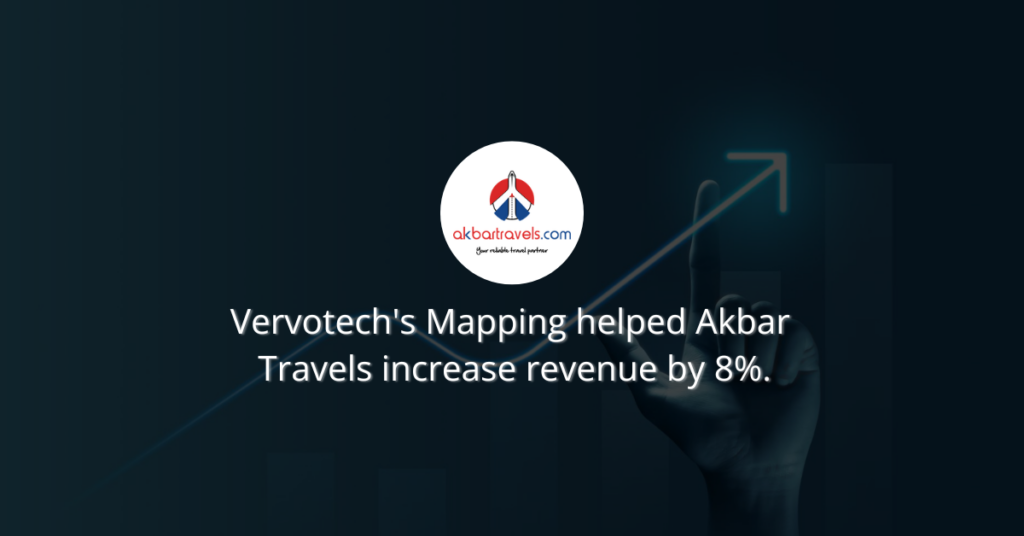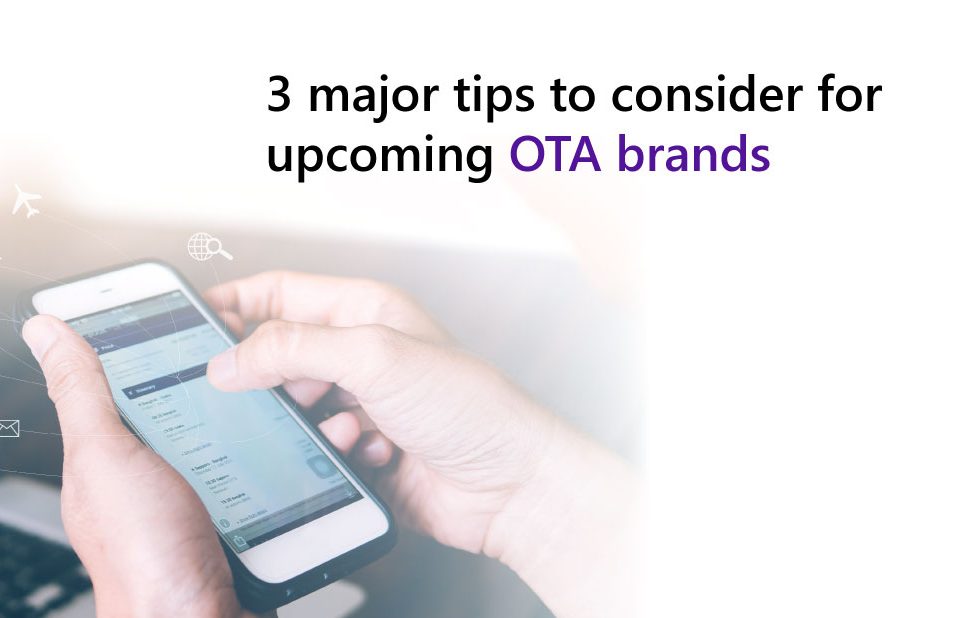Choosing Vervotech Over In-House Mappings Helps Akbar Travels To Increase Mapping Accuracy And Efficiency

Our client is an international, award-winning B2B travel portal powering its customers and travel partners with global travel content such as accommodation, transfers, and sightseeing activities. The company offers over 650,000 hotels and apartment rooms in over 80 countries with a mission to make the travel business easier through technology. Enter your email to read the case study! Challenges our client faced: Delay in onboarding of new source or supplier Outdated hotel content Complexity in latest content distribution High cost of maintaining a mapping platform Lack of mapping expertise affected their mapping accuracy and coverage Value delivered by Vervotech Real-time mapping in 24 hours 40% reduced mapping costs Cost-effective for SME businesses Quick turnaround time on escalations Flexible in adopting new technologies Download this case study to find out: Why Akbar Travels chose Vervotech over their in-house mapping How Vervotech offered better visibility of Akbar Travels’ hotel inventory How Vervotech helped Akbar Travels stay ahead of its competitors Vervotech’s understanding of hotel distribution is very deep. Their team engaged with our developers and worked together to ensure that the integration was successful. Today, we successfully deliver the latest content to all our agencies, which helps us stay ahead of our competitors. Madhubabu Singani Product Manager Hotels, Akbar Travels Online
3 major Tips to consider for upcoming OTA brands

2022 was the recovery year for the global tourism industry from the damage caused by pandemic in 2020-21. There was an estimated 80% increase in the volume, the volume we are talking about is 1.8 billion international tourist trips. This figure decreased to 1.4 billion in 2021, and is estimated to approach 1.6 billion again in 2022. By 2030, there will be 1.8 billion worldwide tourists a year, according to the United Nations World Tourism Organization — 400 million more than last year, according to reports Given that, there is a huge surge where many entrepreneurs are developing Online Travel Agencies globally. There are three important building blocks of any OTA; Front End: The OTA app/website Back End: Booking Engine Supplier Side: GDSs, flight consolidators, bedbanks, wholesalers, aggregators If any of these elements are missing or if they are not given enough consideration, the project may fail in many ways. Here are the list of dangers that every aspiring OTA entrepreneur should keep in mind and plan accordingly. Lack of Unique properties Slow Booking Engine Speed Content Also Read – Why are White Label Travel Solutions Crucial for Travel Startups? 1. Lack of Unique properties: There are estimated to be around 95 million properties globally with duplicate listings pushed by the bedbanks, GDSs, aggregators, etc. For any OTA platform, it is of utmost importance to make sure there are no duplicate listing of properties. Similarly, the suppliers tend to push the rates and availability of the same category room, multiple times. For Example, a category of Deluxe room, Ocean View, for a particular hotel may be displayed like “Dlx room, Ocn View”, “View Ocean, std dlx rm”, etc. which may come from different providers with different rates and availability, creating a confusion for the customers visiting the OTA leading to bad bookings, missed booking and awful user experience. Outsourcing a mapping provider is always recommended which can ensure the ratio of bad booking is reduced and provide a better user experience for the customers. 2. Slow Booking Engine Speed: Customers want a fast, agile, intuitive booking engine where the results must be loaded on the fly. A booking engine is the heart of an OTA which performs searches, marking up rates, filter results, payments, invoicing and much more. If the engine fails to respond on time, the client may feel impatient and consequently OTA may lose the booking. The travellers visiting the website may lose interest and, in some cases, might end up leaving negative reviews on public fora. There are two options to fight this issue. Partnering up with Travel tech companies or developing an inhouse booking engine. Outsourcing is more reasonable than having an in-house tech team. Because, typically, outsourced development teams have more development experience in different fields. If an unusual problem arises, there is no need to hire new specialists for your in-house IT team. Your third-party vendor will do it for you with minimal effort from your side. So, with the proper planning, you can reach the same goal with a reasonable budget. 3. Content: A rich, standard and unified content always attract customers. A website’s static content includes hotel information such as hotel name, hotel property images, hotel amenities, room descriptions, geocodes, hotel policies, and more. Each hotel may showcase the stay experience that they offer by using descriptive content. In fact, descriptive content changes are less frequent than dynamic content but need to be updated regularly. If the descriptive content is not regularly updated, then OTAs risk customer experience, and passing inaccurate hotel information to visitors, which eventually leads to missed business opportunities and revenue losses. Final Words! If you think the above-mentioned tips help, feel free to reach out to us to discuss in detail. Before concluding here are some final tips: Outsource as much as you can. This will keep the budget in place and help you reach your goals. Customer feedback is the key to build a great brand and continuous improvement in providing better user experience. In fact, every OTA should thrive on feedbacks. Finally, make sure the properties are unique on the website for driving quality traffic with high purchase intent. The rich, standard, and updated content is something that every customer seeks.



